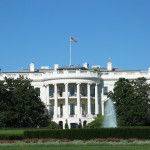Clash of the Titans: Bush v. Gore

The upcoming Presidential election will likely be decided by a very narrow margin, but few Presidential elections will likely ever rival the epic battle between then Texas Governor George Bush and Vice President Al Gore. The 2000 presidential election was largely resolved by the U.S. Supreme Court in a series of decisions that culminated with Bush v. Gore.
The Facts of the Case
On the day after the Presidential election, the Florida Division of Elections reported that Bush had won the state by a margin of only 1,784 votes. Because the margin of victory was less than “one-half of a percent . . . of the votes cast,” an automatic machine recount was conducted under the state’s election laws, the results of which still showed Bush won but by a much slimmer margin. Gore then sought manual recounts in Volusia, Palm Beach, Broward, and Miami-Dade Counties, which were also authorized under Florida’s election laws.
A number of legal disputes regarding the election results followed, and the Florida Supreme Court eventually ordered a manual recount of all votes in many Florida counties to resolve the infamous “hanging chad” problem, among others caused by the balloting machines. Bush subsequently filed an emergency application for a stay of this mandate and a determination by the Supreme Court regarding the constitutionality of the recount.
The Supreme Court’s Decision
Roughly one month after the votes were cast, the Supreme Court issued a 5-4 decision. It ruled that the Florida Supreme Court’s recount order was unconstitutional because it afforded greater protection to some ballots over others, in violation of the Fourteenth Amendment. It states, “No State shall make or enforce any law which shall abridge the privileges or immunities of citizens of the United States; nor shall any State deprive any person of life, liberty, or property, without due process of law; nor deny to any person within its jurisdiction the equal protection of the laws.”
The Supreme Court specifically found fault with the lack of uniform standards associated with what constituted a legal vote. As the Court highlighted in its opinion, “The standards for accepting or rejecting contested ballots might vary not only from county to county but indeed within a single county from one recount team to another.”
Given the lack of uniformity, the Supreme Court held that the recount was unconstitutional because the recount order afforded “arbitrary and disparate treatment to voters in its different counties.” In doing so, the state violated the long-standing principle of one-man, one-vote.
Ultimately, the case is known more for its role in the controversy surrounding the election than any precedent it established. In fact, the opinion closes by famously stating, “Our consideration is limited to the present circumstances, for the problem of equal protection in election processes generally presents many complexities.” In other words, don’t quote us on this.
The decision in this case is a clear contrast to the majority of “political question” cases decided by the Roberts court. Roberts tries to emulate the wisdom of Justice Marshall by navigating cautiously around “political” issues. However, this case was an example of judicial activism and judicial “politics” at its worst.
Previous Articles
Supreme Court to Address Racial Discrimination in Jury Selection
by DONALD SCARINCI on January 29, 2026While the U.S. Supreme Court has concluded oral arguments for the year, it continues to add cases t...
Supreme Court Halts Deployment of National Guard to Chicago
by DONALD SCARINCI on
In Trump v. Illinois, 607 U.S. ____ (2025), the U.S. Supreme Court refused to stay a district court...
SCOTUS Agrees to Consider Merits of Birthright Citizenship Case
by DONALD SCARINCI on
On December 5, 2025, the U.S. Supreme Court agreed to review the constitutionality of one of Presid...
The Amendments
-
Amendment1
- Establishment ClauseFree Exercise Clause
- Freedom of Speech
- Freedoms of Press
- Freedom of Assembly, and Petitition
-
Amendment2
- The Right to Bear Arms
-
Amendment4
- Unreasonable Searches and Seizures
-
Amendment5
- Due Process
- Eminent Domain
- Rights of Criminal Defendants
Preamble to the Bill of Rights
Congress of the United States begun and held at the City of New-York, on Wednesday the fourth of March, one thousand seven hundred and eighty nine.
THE Conventions of a number of the States, having at the time of their adopting the Constitution, expressed a desire, in order to prevent misconstruction or abuse of its powers, that further declaratory and restrictive clauses should be added: And as extending the ground of public confidence in the Government, will best ensure the beneficent ends of its institution.





